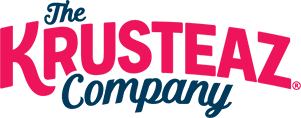Supply Chain Transparency
California Transparency in Supply Chains Act Disclosures
Continental Mills, Inc. supports the goals of the California Transparency in Supply Chains Act of 2010. Continental Mills efforts in this area include the following:
1. Product Supply Chains/Suppliers
At this time Continental Mills does not have specific steps in place to verify its product supply chains to evaluate and address risks of human trafficking and forced labor. However, each of Continental Mills’ suppliers is required to certify its compliance with all applicable laws. Continental Mills is in the process of collecting additional certifications from each of its suppliers (a “Supplier Certification”) that they do not use any form of forced labor or permit human trafficking in their businesses or supply chains.
2. Supplier Audits
At this time Continental Mills does not conduct audits of its suppliers. The Supplier Certification that Continental Mills is in the process of collecting will give us the right to audit any of its supplier’s facilities in order to verify compliance with the Supplier Certification. In the event that Continental Mills discovers any noncompliance, it shall have the right to demand corrective action or terminate the relationship.
3. Supplier Certification
Continental Mills requires all of its suppliers to certify that they are in compliance with all applicable laws. In addition, Continental Mills is in the process of collecting an additional Supplier Certification that the suppliers do not use any form of forced labor or permit human trafficking in their businesses or supply chains.
4. Internal Accountability
Continental Mills expects each of its employees and contractors to comply with all laws and to act with the utmost integrity in performing their job functions. Any employee or contractor who does not meet Continental Mills expectations is at risk of being terminated. Continental Mills is considering implementing a training program for certain of its employees around issues relating to ethical dealings with third parties including issues relating to forced labor and human trafficking.
5. Employee Training
While Continental Mills does not currently train employees specifically on issues related to forced labor and human trafficking, it is looking into implementing such a training program for certain of its employees who work in procurement and supply chain management.
